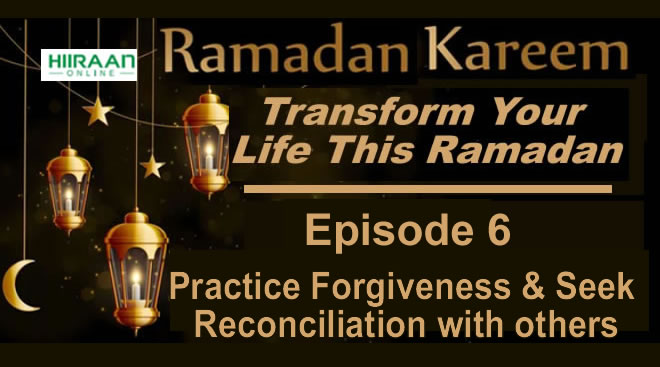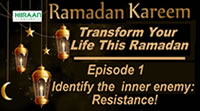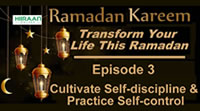by Safia Said
Tuesday March 28, 2023

Forgiveness is a powerful tool that can transform relationships and bring peace and healing to individuals and communities. Practicing forgiveness requires us to let go of anger, resentment, and bitterness towards those who have wronged us. It means choosing to release the negative emotions we are holding onto and extending grace to others. Forgiveness is not easy, but it is necessary for our own well-being and for the restoration of our relationships with others.
Seeking reconciliation with others is a crucial step in the process of forgiveness. It means trying to repair broken relationships and rebuild trust. Reconciliation requires vulnerability, humility, and willingness to listen and understand perspectives of others. It involves acknowledging the harm that was caused and taking responsibility for our own actions. Seeking reconciliation with others is not always possible, but it is important to make the effort to heal relationships whenever we can.
There are some practical tools, strategies, and tips to help you practice forgiveness and seek reconciliations with others:
1. Acknowledge your feelings: It’s essential to acknowledge your feelings of hurt, anger or disappointment towards the person who has wronged you. Recognizing these emotions can help you process them and work towards forgiveness.
2. Practice empathy: Try to put yourself in the other person’s shoes and understand their perspective. This can help you cultivate empathy and compassion, which are essential for forgiveness and reconciliation.
3. Communicate effectively: when seeking reconciliation, it’s important to communicate effectively and clearly. Use “I” statements to express how you feel and avoid blaming or accusing the other person.
4. Set boundaries: Forgiveness doesn’t mean you have to forget or ignore the harm that was caused. Setting boundaries can help you protect yourself and establish healthy relationships.
5. Seek Support: Seeking support from a trusted friend or a family member, a support group, or a therapist can help you navigate the process of forgiveness and reconciliation.
6. Practice Self-care: Forgiveness and reconciliation can be emotionally challenging. Taking care of yourself through self-care activities such as exercise, meditation, or spending time in nature can help you manage stress and cultivate a positive mindset.
7. Be Patient: Forgiveness and reconciliation take time and effort. Be patient with yourself and the other person and recognize that healing is a process.




